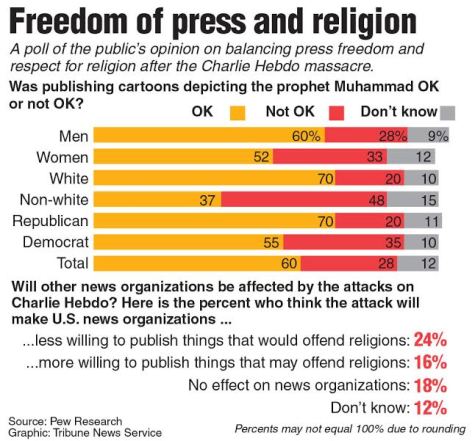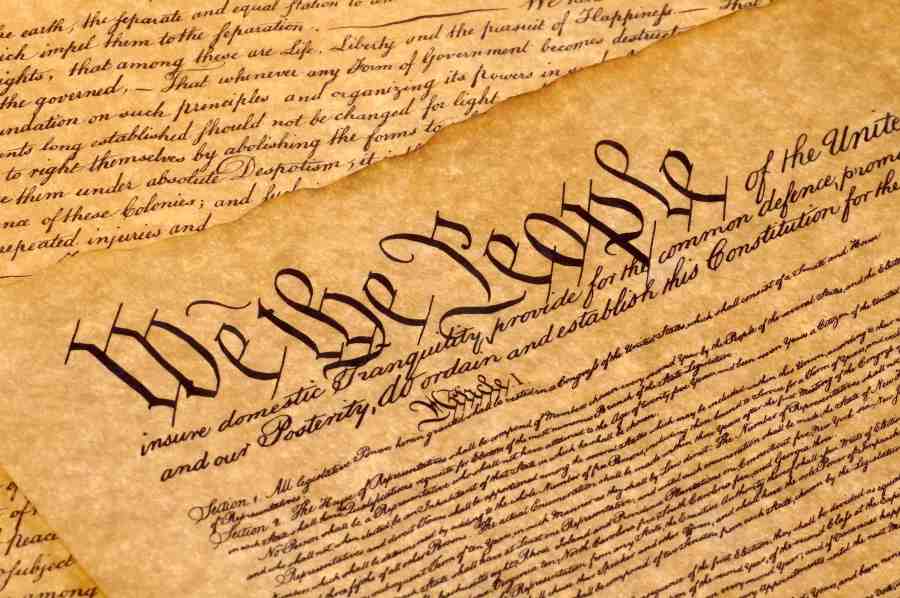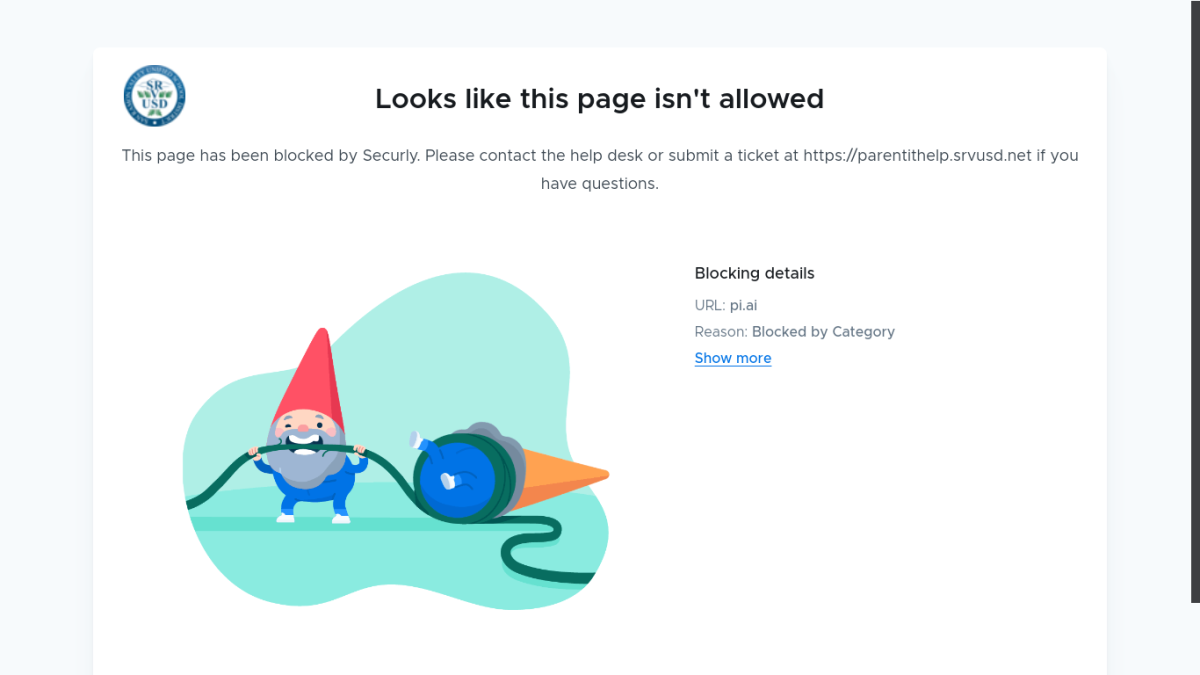What is freedom of speech?
February 18, 2015
The First Amendment, a right guaranteed to the American people over 200 years ago, remains on the forefront of political and personal debate in light of recent global events.
The First Amendment, simply stated, is the freedom of speech. A new era of this freedom has awoken throughout the world; from the Hong Kong protests to the Paris attacks, the cause for the importance of this freedom has sparked people to stand up for their rights. Even with the fight for freedom of speech taking form, two sides are emerging. One sees the freedom to be an open door, allowing any form of free speech and expression to be permitted, while the other states that these freedoms have a prominent line that should not be crossed.
Questions begin to emerge when these two sides are examined: What really is freedom of speech? Is it an unconditional right with no exceptions? Does it include the right to offend?
“[Freedom of speech is] one’s ability to speak without fear,” senior Monica Friant said.
It has been said “If liberty means anything at all, it means the right to tell people what they do not want to hear.” In modern-day America, we find ourselves wondering how far our personal liberties can extend without harming or insulting other people.
If we go back to the beginning of the First Amendment, we find that the government cannot “abridge the freedom of speech”, and that’s exactly it. Perhaps left intentionally vague, the amendment prevents the government from stifling individual opinion, so long as there is no danger to national security.
The concept of “true” free speech is dependent, not only upon a tolerant government, but also on a tolerant population. In a system where free speech can prevail, everyone must be aware and respectful of other’s opinions. Whether interpreted as right or wrong, every person should at least have a chance to speak their mind or project their thoughts without an immediate penalty.
With free speech, there is no priority given to a specific point of view. In the United States, both Zionist and Anti-Semitic groups have been allowed to preach their agendas because under this freedom, no voice is a “wrong” voice. But, just because it is not considered “wrong”, can’t it be considered morally negative and hateful?
“[The saying] ‘its a free country’ is used as justification for saying things that truly shouldn’t be said.” Sophomore Becca Clemmons said. “For example, racist or sexist remarks. People often mistake freedom of speech as an excuse for rudely stereotypical remarks.”
While this type of system can often inflame the emotions and tempers of opposing ideologies, it nevertheless opens the door for an unprecedented exchange of information and opinion that would otherwise be unavailable.
Considering the Paris attacks, many wonder if Charlie Hebdo had a right to publish their depiction of the Prophet Muhammad and other religious beings.
The “satirical” image of the Muslim Prophet has become a controversial issue since many believe it promotes islamophobia and disregards the majority of Islamic beliefs.
The events that have triggered this debate has indeed made people look closely into freedom of expression and the United State’s attitude towards it. Everyday millions of citizens in the United States exercise their freedom, whether it be in a heated Speech & Debate class or through a daily rant on Twitter. The events have put into perspective what can occur when freedom of speech crosses into uncharted territory. Freedom of speech and expression should be upheld, and people should take into consideration the affects their words have on others.
“There are other countries all around the world, where if you stand up for what you believe in, you could be killed or punished severely. We need to admire our freedom and be thankful for it,” sophomore Baylee Betts said.













